Nina Power discussing November
Nina Power discussing November
Nina Power discusses November by Hito Steyerl
Nina’s going to talk about November, by Hito Steyerl: what and how the film thinks, or about what and how it might makes us think (which is connected, but not the same thing), by watching, and it discussing (with you?).
ReadNina’s one of our most exciting feminist philosophers/ writers/ activists: she’s written on topics incl. Iran, vintage pornography, student protest, Noise music and Marxism for The Guardian, The New Statesman, The Wire and Frieze, as well as translating Badiou 1 . Her book, One Dimensional Woman is a long overdue and important corrective to the sad consumerist ends to which 20th C. feminism has been put to use 2 .
Nina’s going to talk about November, by Hito Steyerl: a prolific writer, filmmaker, theorist and teacher, whose interests cover cultural globalisation, feminism, culture, migration and racism. Her films are a montage of politics and pop, Hollywood and independent film, interviews and voice-over commentaries; they have much to say about our current situation.
Hito has written about November rather beautifully. We were going to try and paraphrase something about the film, but there’s nothing you would really want to cut from Hito’s own intro, so we’ve copied it below, in full.
Nina’s going to talk about what and how the film thinks, or about what and how it might makes us think (which is connected, but not the same thing), by watching, and discussing it (with you?).
November
“An age that has lost its gestures is, for this reason, obsessed by them. For human beings who have lost every sense of naturalness, each single gesture becomes a destiny. And the more gestures lose their ease under the action of invisible powers, the more life becomes indecipherable“.
My best friend when I was 17, was a girl called Andrea Wolf. She died in 1998, when she was shot as a Kurdish terrorist in Eastern Anatolia. There was a warrant out for her in Germany, as she was suspected of having participated in terrorist activities, for example the complete destruction of the deportation prison in Weiterstadt. She was also suspected of having been an associate to the Red Army Faction.
In 1996, she chose to go to Kurdistan in order to join the women’s army of the PKK, the Workers’ Party Kurdistan. She took on the name “Ronahi”, trained and lived with the women’s army for a few months, mostly in camps in Northern Iraq. Then in October 1998, her unit was tracked by the Turkish army close to the border. A heavy firefight took place. Only a few of the units members remained alive. They were under heavy fire by Army helicopters. Most of the survivors took refuge in what is being described as an earth hole. As surviving earwitnesses who remained in the hole say, she was shot by either army members or Kurdish village keepers after having been dragged out as a prisoner. Her case is only one of the many extralegal executions which structure this war.
“Gesture is the name of this intersection between life and art, act and power, general and particular, text and execution. It is a moment of life subtracted from the context of individual biography as well as the moment of art subtracted from the neutrality of aesthetics: it is pure praxis.” 3
This project tackles the question of what is nowadays called terrorism and used to be called internationalism once. It deals with the gestures and postures it can create, and their relationship to figures of popular culture, namely cinema. Its point of departure is a feminist martial arts film Andrea Wolf and I made together when we were 17 years old. Now this fictional martial arts flic has suddenly become a document. November is not a documentary about Andrea Wolf. It is not a film about the situation in Kurdistan. It deals with the gestures of liberation after the end of history, as reflected through popular culture and travelling images. This project is a film about the era of November, when revolution seems to be over and only its gestures keep circulating.
Hito Steyerl
- No mean feat.
- e.g., a kind of Lambrini/ Boots the chemist ad/ Sex and the City feminism: the independent woman as a consumer of gourmet chocolates and a really, really fun person who happens to be oh so charmingly for equal rights for women (to buy stuff)…
- Both quotes: Agamben, G (2000) ‘Notes on Politics’ Means Without End
Documentation
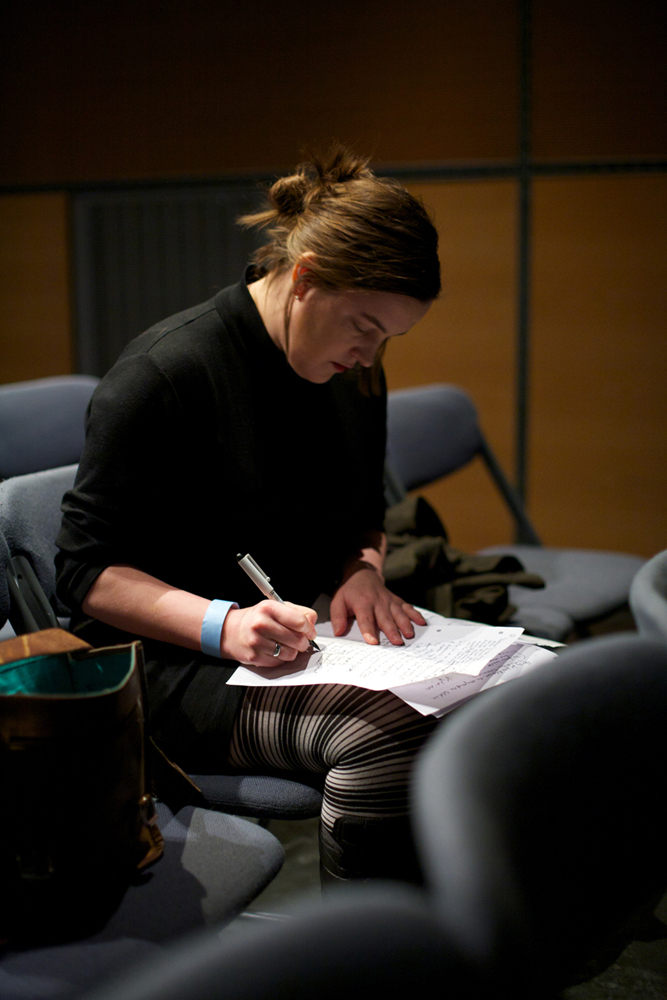
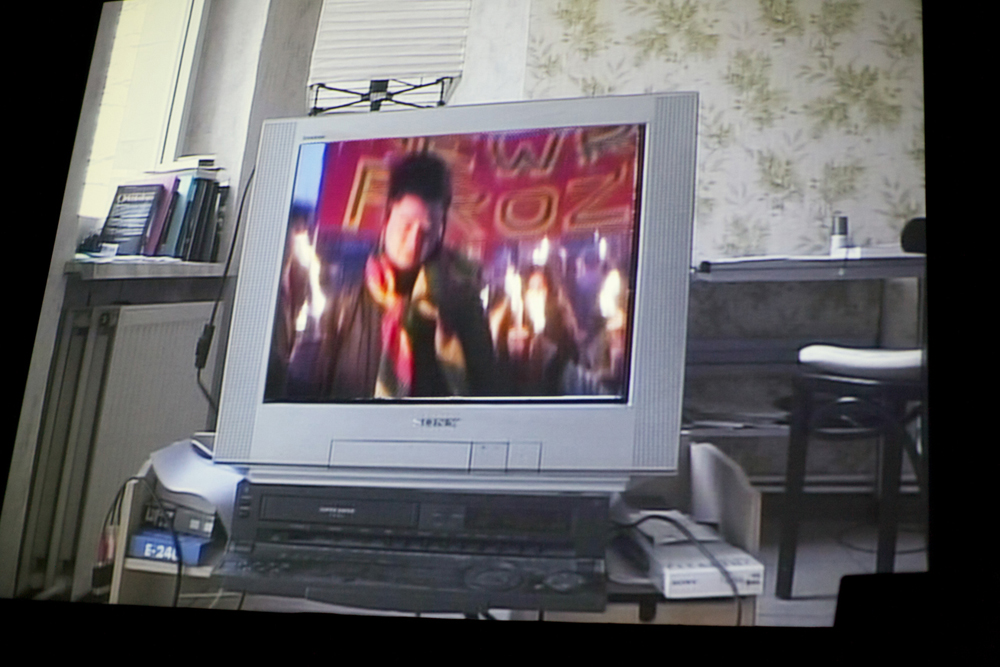
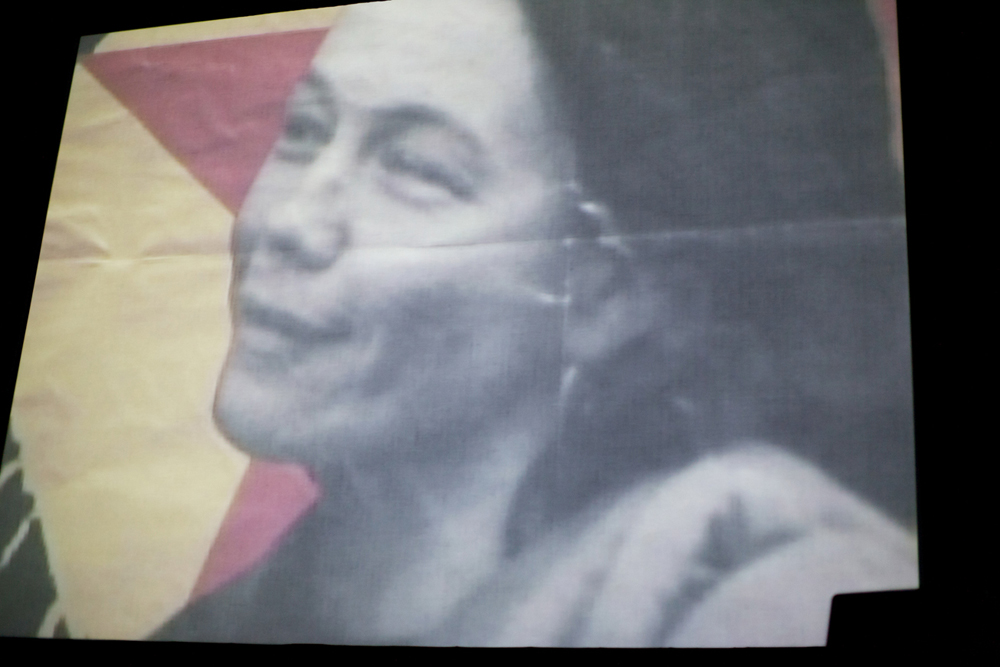
▴ Credit: Alex Woodward
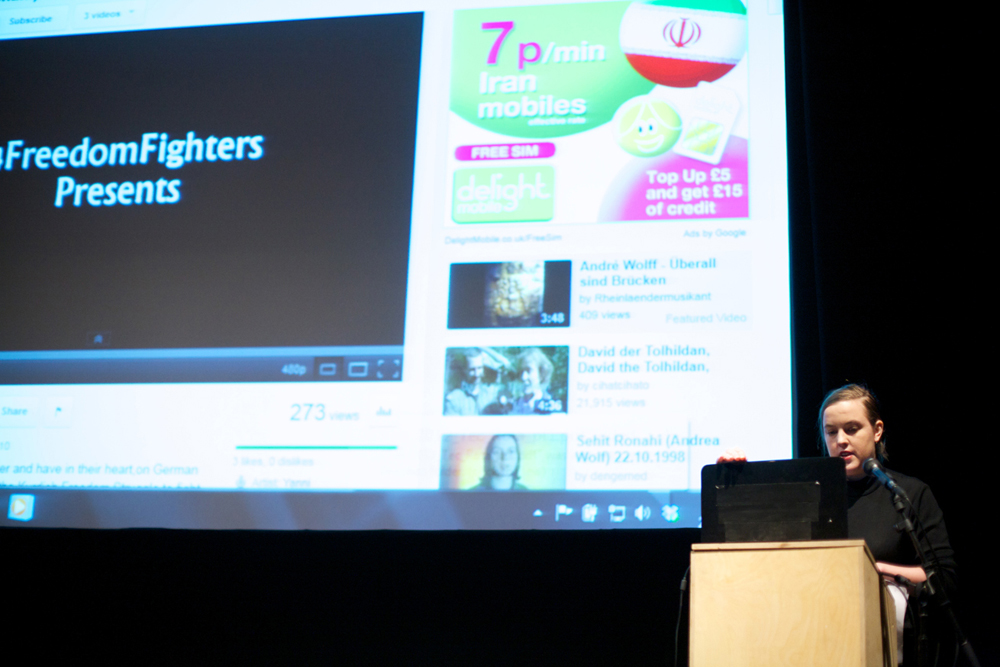
▴ Credit: Alex Woodward
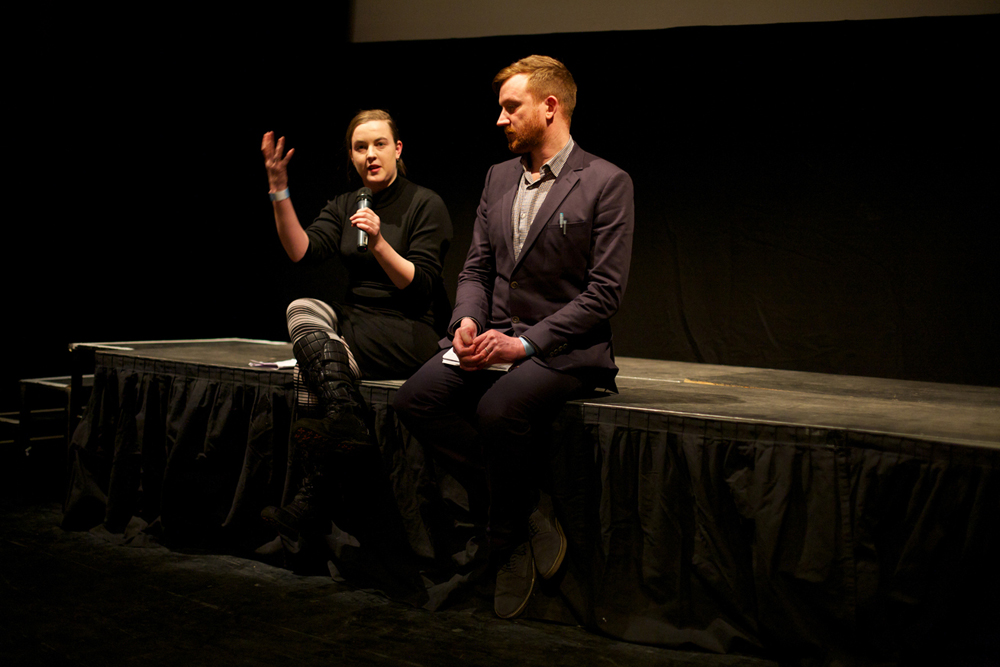
▴ Credit: Alex Woodward
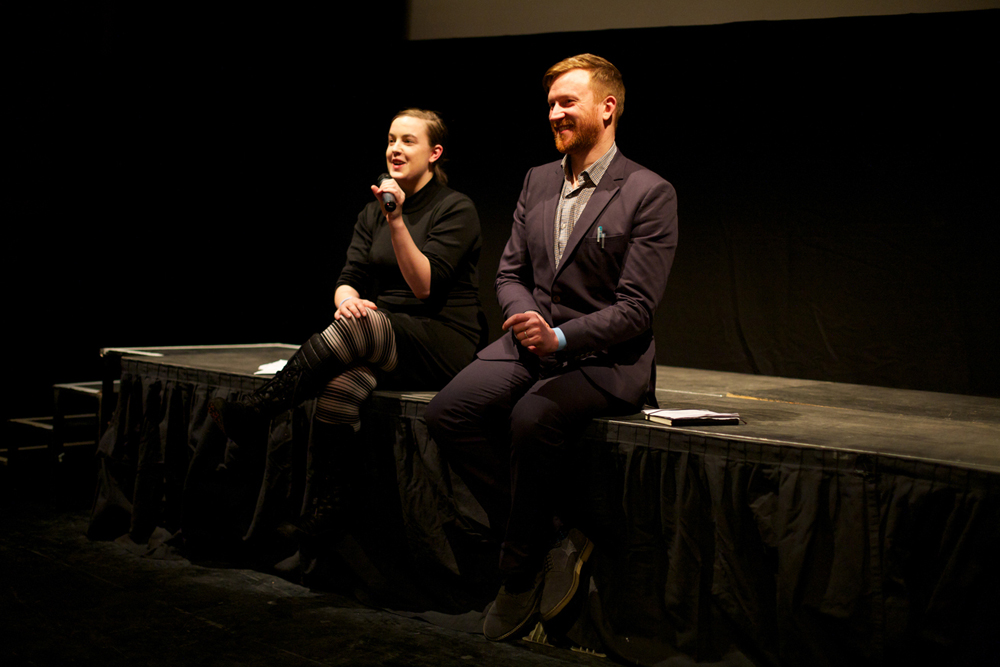
▴ Credit: Alex Woodward
Artists

Hito Steyerl

